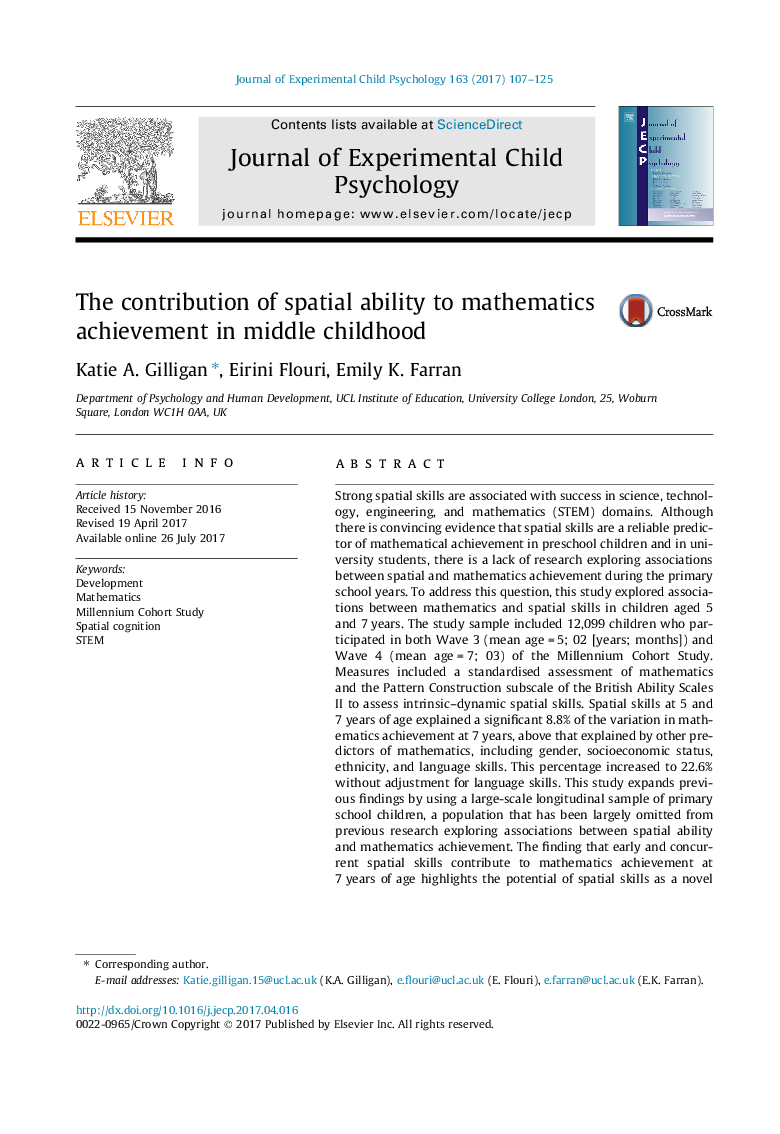| Article ID | Journal | Published Year | Pages | File Type |
|---|---|---|---|---|
| 5039931 | Journal of Experimental Child Psychology | 2017 | 19 Pages |
â¢Participants included 12,099 children who took part in the Millennium Cohort Study.â¢Associations between spatial (age 5 and 7) and mathematics skills (age 7) were assessed.â¢The study controlled for gender, SES, ethnicity and vocabulary skills.â¢Spatial skills explain between 8.8% and 22.6% of the variation in mathematics performance.â¢Spatial skills are better longitudinal predictors of mathematics then vocabulary skills.
Strong spatial skills are associated with success in science, technology, engineering, and mathematics (STEM) domains. Although there is convincing evidence that spatial skills are a reliable predictor of mathematical achievement in preschool children and in university students, there is a lack of research exploring associations between spatial and mathematics achievement during the primary school years. To address this question, this study explored associations between mathematics and spatial skills in children aged 5 and 7 years. The study sample included 12,099 children who participated in both Wave 3 (mean age = 5; 02 [years; months]) and Wave 4 (mean age = 7; 03) of the Millennium Cohort Study. Measures included a standardised assessment of mathematics and the Pattern Construction subscale of the British Ability Scales II to assess intrinsic-dynamic spatial skills. Spatial skills at 5 and 7 years of age explained a significant 8.8% of the variation in mathematics achievement at 7 years, above that explained by other predictors of mathematics, including gender, socioeconomic status, ethnicity, and language skills. This percentage increased to 22.6% without adjustment for language skills. This study expands previous findings by using a large-scale longitudinal sample of primary school children, a population that has been largely omitted from previous research exploring associations between spatial ability and mathematics achievement. The finding that early and concurrent spatial skills contribute to mathematics achievement at 7 years of age highlights the potential of spatial skills as a novel target in the design of mathematics interventions for children in this age range.
